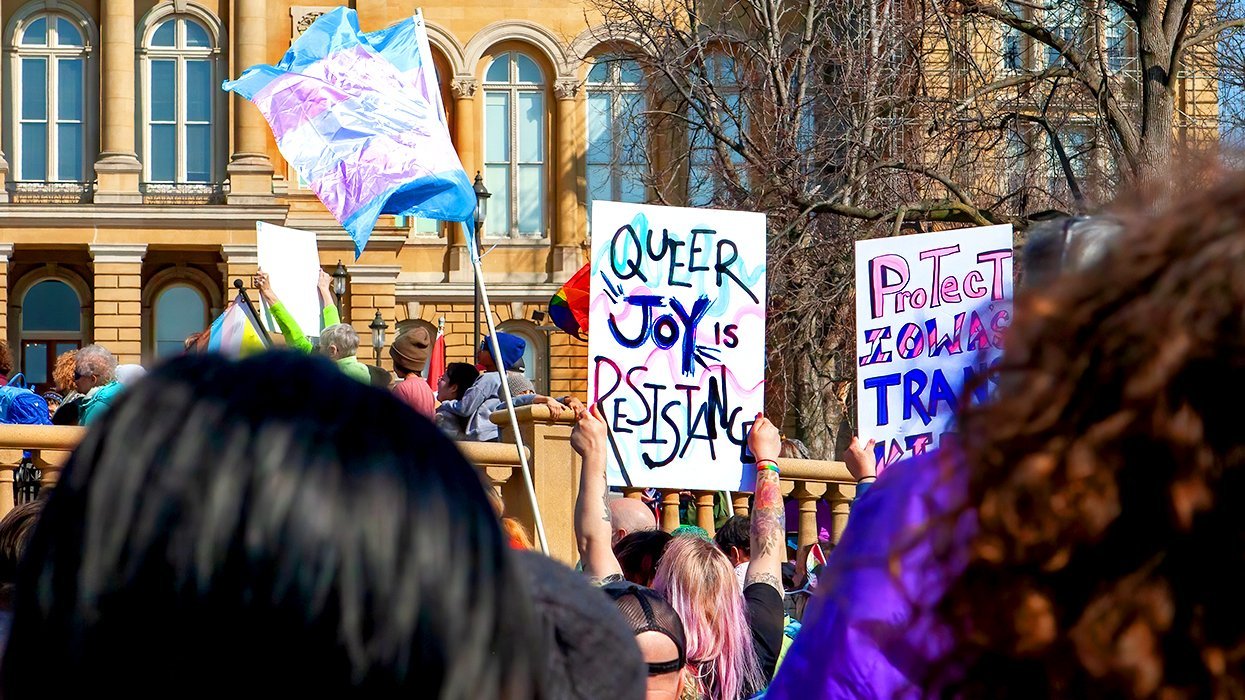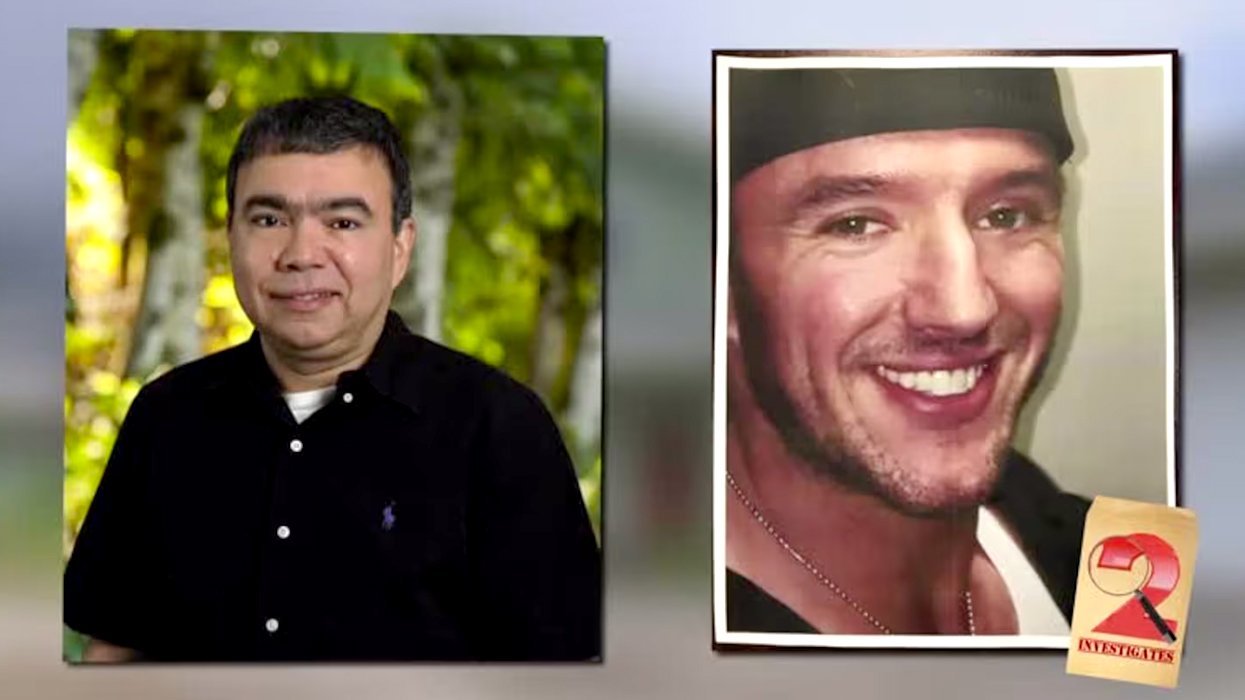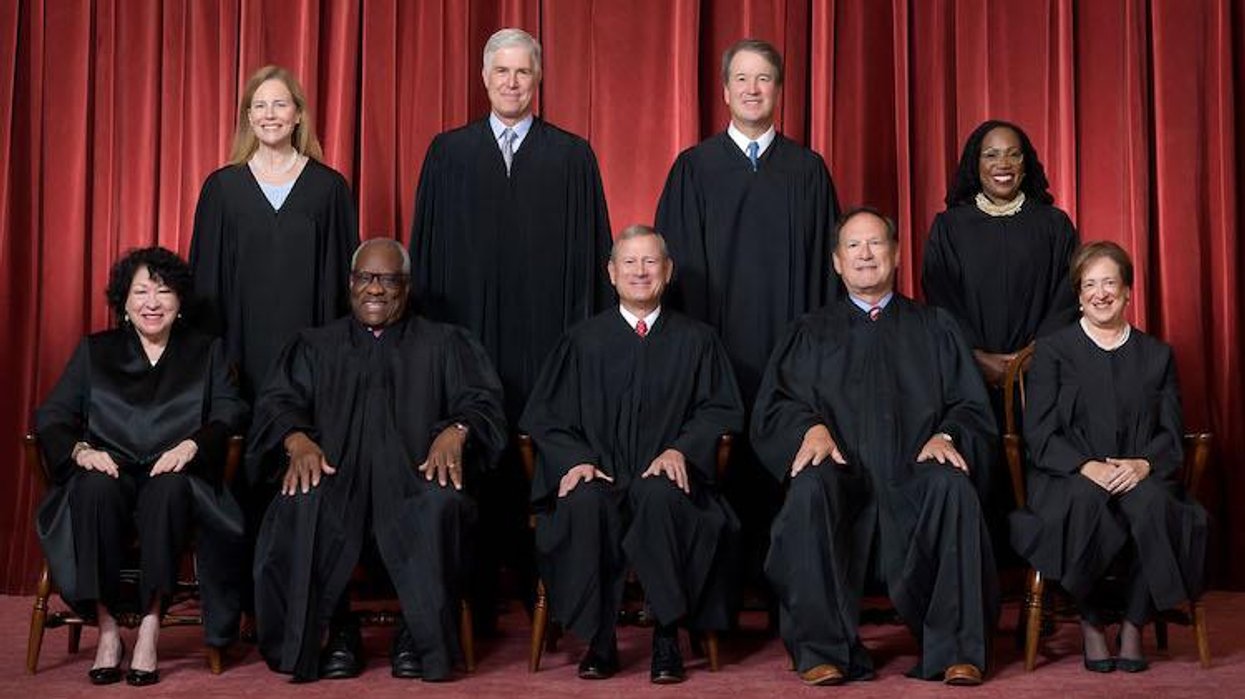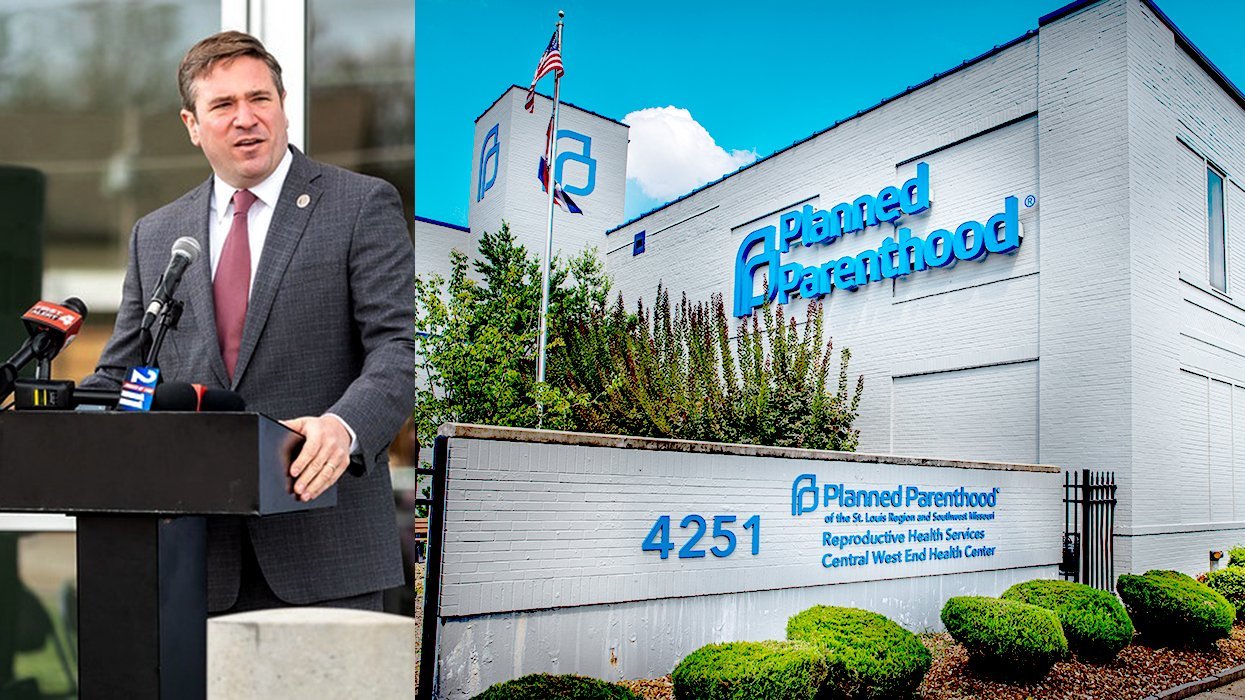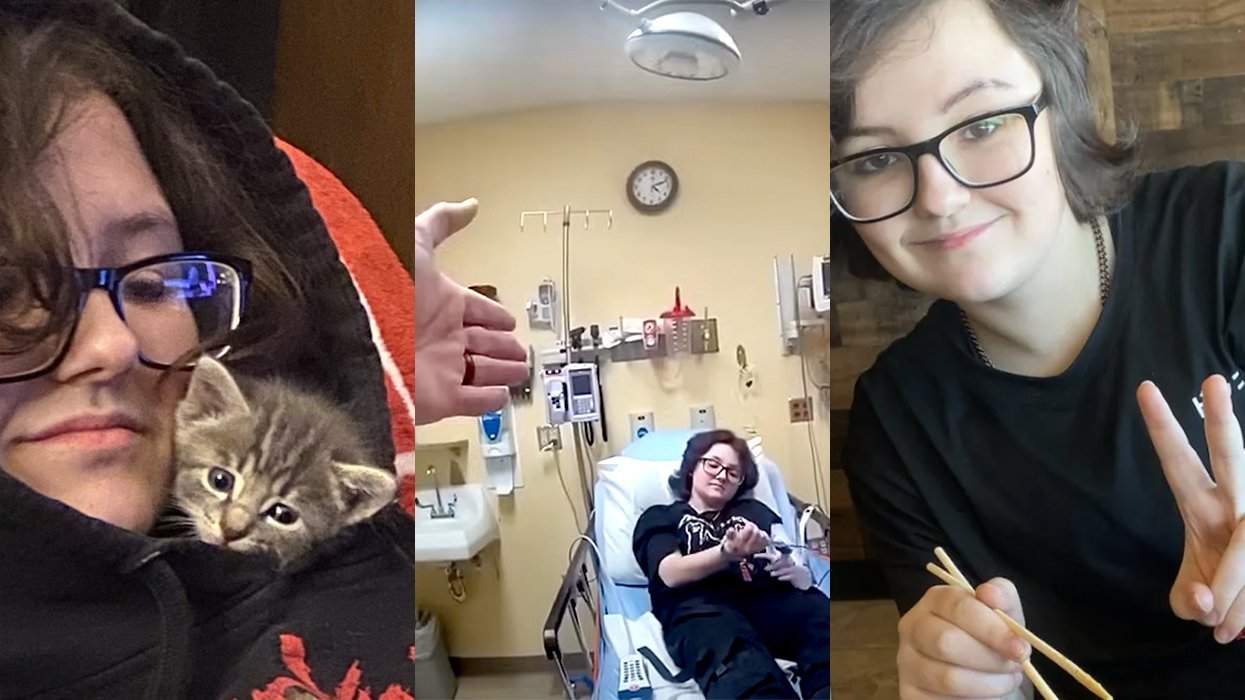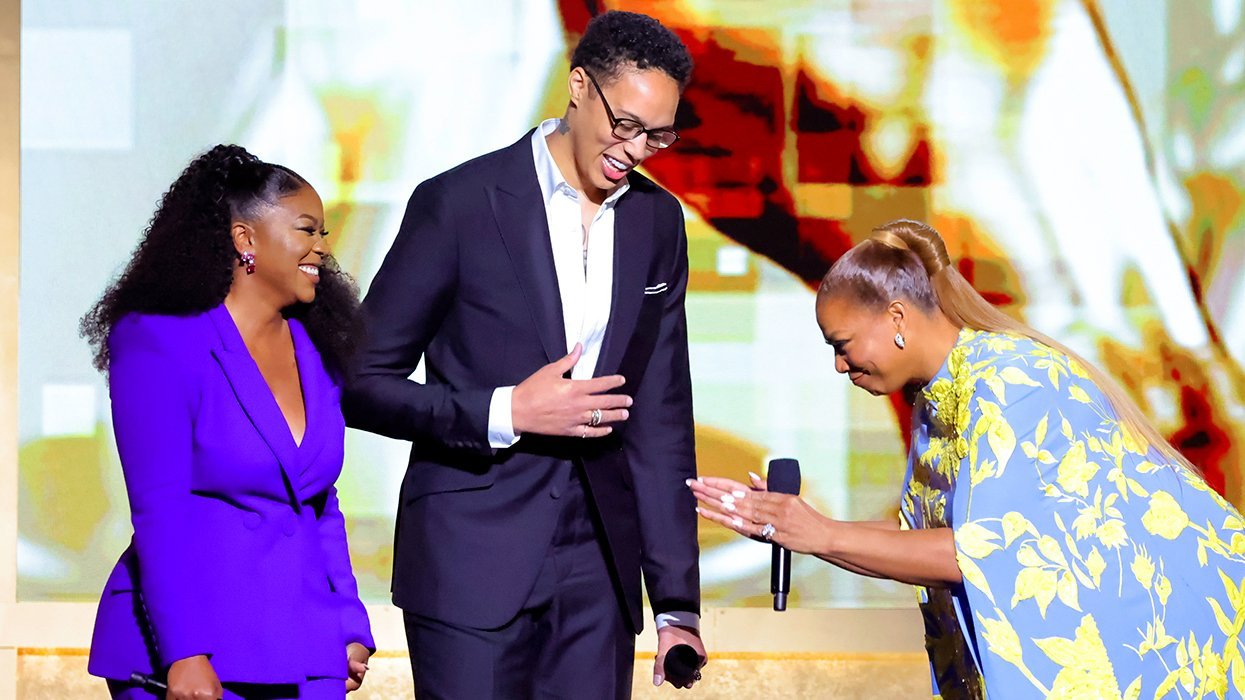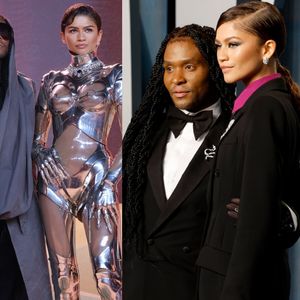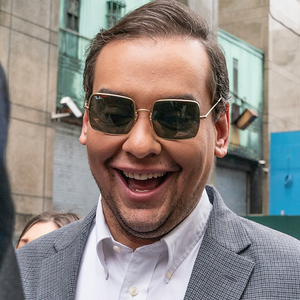
CONTACTStaffCAREER OPPORTUNITIESADVERTISE WITH USPRIVACY POLICYPRIVACY PREFERENCESTERMS OF USELEGAL NOTICE
© 2024 Pride Publishing Inc.
All Rights reserved
All Rights reserved
By continuing to use our site, you agree to our Private Policy and Terms of Use.
New York City mayor Michael Bloomberg delivered a significant address Thursday afternoon in which he made an intellectual and personal case for the marriage equality bill that could come before the state legislature within weeks.
The nearly 20-minute speech, delivered in Manhattan before more than 150 invited guests of the administration, positioned marriage equality as the next step in the inevitable expansion of "freedom, liberty, and equality" that has defined the American experience through the abolition of slavery, workers' rights, women's rights, and minority civil rights. The mayor made special mention of New York City as the home of the Stonewall Inn, site of the 1969 uprising credited with sparking the modern gay rights movement.
"The time has come for us to fulfill the dreams that exploded into Sheridan Square 42 years ago to allow thousands of men and women to become full members of the American family, and to take the next step on the inspired journey our founding fathers first began," said Bloomberg to the audience at Cooper Union, which was founded by abolitionist Peter Cooper.
His speech argued for marriage equality in highly personal terms while also directing appeals toward undecided state senators, whom he described as "torn," urging them to vote on the right side of history. Last week Bloomberg, a Republican turned independent, made his first visit to Albany for the exclusive purpose of lobbying members of that chamber, where no Republican supported the bill in 2009, when it passed the assembly for a third time but failed in the senate.
"It is my hope that members of the state senate majority will recognize that supporting marriage equality is not only consistent with our civic principles -- it is consistent with conservative principles," he said. "Conservatives believe that government should not intrude into people's personal lives -- and it's just none of government's business who you love."
The reference to conservatives holds special import in New York, where Conservative Party leader Michael Long, who opposes marriage equality, has vowed to withhold his party's influential endorsement from lawmakers who support the bill. In an acknowledgment of religious opposition, the mayor underscored that marriage equality is a "civil issue," where the bill proposed in Albany puts no requirements on religious institutions to perform or sanction same-sex ceremonies.
By turns passionate and pragmatic, the remarks represented the mayor's latest use of the high-profile speech medium to address a potentially contentious issue about which he feels strongly. His gay niece Rachel Tiven, the executive director of Immigration Equality, mentioned his defense last summer of the Islamic cultural center proposed near ground zero in her introduction of the mayor.
"I know that he doesn't agonize about defending these rights," she said. "It's not hard for him to come to these positions. He doesn't weigh his poll numbers or consult advisers. These issues are very clear to him and uncomplicated. Individual liberty and personal freedom are the essence of the Constitution. They are what make us American."
Bloomberg referenced his niece and spoke generally about gay friends and members of his staff in the speech. Audience members included John Feinblatt, chief policy adviser to the mayor, and his partner, Consumer Affairs commissioner Jonathan Mintz, who attended with one of their two young daughters.
"There's a reason I'm so passionate about this issue -- and so determined to push for change. I see the pain the status quo causes -- and I cannot defend it," said Bloomberg. "When I meet a New Yorker who is gay, when I speak with friends and members of my staff who are gay, or when I look into the eyes of my niece, Rachel, I cannot tell them that their government is correct in denying them the right to marry. I cannot tell them that marriage is not for them. I cannot tell them that a civil union is good enough."
The audience reserved applause for the conclusion of the speech, except for sustained clapping after the point at which Bloomberg called for both houses of the state legislature to debate and vote on the marriage equality bill this session. That approach would seem to put him at odds with Gov. Andrew Cuomo and a coalition of advocates, who stand in unanimous agreement to vote only on legislation that has the 32 votes needed to pass in the Republican-controlled senate.
Ross Levi, executive director of the Empire State Pride Agenda, part of the New Yorkers United for Marriage coalition working with Cuomo, downplayed any prospect of strategic differences in an interview after the speech, which he roundly praised.
"I think everyone -- the mayor, the governor, the advocates -- all agree. No one's interested in symbolism on this issue," said Levi. "Everyone's interested in winning. I think we are all squarely on the side of doing everything we can by the end of this session to have a bill that passes the assembly, passes the senate, and is signed into law by the governor."
Richard Socarides, president of Equality Matters and former LGBT adviser to President Bill Clinton, called the speech, believed to be the first such major address by a mayor on the subject, a potential "tipping point."
"I think it was among the smartest, most passionate cases for equal marriage rights as I've heard, certainly from a straight politician," said Socarides. "I think it's historic and I think hopefully it will really help and lead to a victory for this."
State senator Thomas K. Duane, the gay Manhattan lawmaker who sponsored the marriage equality bill in 2009, said he would withhold judgment until senate Republicans, for whom the mayor has been a major financial contributor, help pass the legislation.
"The mayor of New York City making a speech about same-sex marriage is positive because he's the mayor of New York City," said Duane. "There wasn't anything particularly new in it. The issue with New York State is to get Republican senators to publicly announce that they are going to vote in favor of marriage."
In addition to his lobbying and the speech, Mayor Bloomberg hosted a fund-raiser Wednesday evening that generated some $250,000 for New Yorkers United for Marriage, according to sources. Rufus Wainwright performed, and the many high-profile attendees included Sarah Jessica Parker, Bravo executive Andy Cohen, Russell Simmons, and New York City council speaker Christine Quinn, who delivered remarks.
Advocates anticipate they could raise as much as $2 million for the marriage equality campaign, which now appears likely to defy some expectations for a swift victory and instead continue into the final days of the legislative session scheduled to end on June 20. Outward attitudes remain cautiously optimistic, despite a Siena poll last week that showed public support for marriage equality falling to 54% from April's historic high of 58%, with opposition increasing to 42% from the all-time low of 36% last month.
The advocates received a boost Thursday morning when Joseph Bruno, the 82-year-old former Republican majority leader of the state senate, reiterated the support he expressed for marriage equality in 2009 during an interview with the Talk 1300 radio station in Albany. In contrast to current majority leader Dean Skelos, who opposes the bill but has vowed not to block a vote, Bruno prohibited a vote on the legislation when he served as leader until 2008, at which time he still opposed same-sex marriage. Also on Thursday, New York State comptroller Thomas DiNapoli released a video in support of the New Yorkers for Marriage Equality campaign from the Human Rights Campaign.
Cathy Marino-Thomas, board president of Marriage Equality New York, also a coalition member, attended the Bloomberg speech, where she recalled sending countless pairs of worn shoes to Bruno over the years. The message was for him to walk a day in her life without equal rights.
"People come to this in their own way," she said. "I don't care how long it took to get him, but we did. Let's move forward and win."
Want more breaking equality news & trending entertainment stories?
Check out our NEW 24/7 streaming service: the Advocate Channel!
Download the Advocate Channel App for your mobile phone and your favorite streaming device!
From our Sponsors
Most Popular
Here Are Our 2024 Election Predictions. Will They Come True?
November 07 2023 1:46 PM
17 Celebs Who Are Out & Proud of Their Trans & Nonbinary Kids
November 30 2023 10:41 AM
Here Are the 15 Most LGBTQ-Friendly Cities in the U.S.
November 01 2023 5:09 PM
Which State Is the Queerest? These Are the States With the Most LGBTQ+ People
December 11 2023 10:00 AM
These 27 Senate Hearing Room Gay Sex Jokes Are Truly Exquisite
December 17 2023 3:33 PM
10 Cheeky and Homoerotic Photos From Bob Mizer's Nude Films
November 18 2023 10:05 PM
42 Flaming Hot Photos From 2024's Australian Firefighters Calendar
November 10 2023 6:08 PM
These Are the 5 States With the Smallest Percentage of LGBTQ+ People
December 13 2023 9:15 AM
Here are the 15 gayest travel destinations in the world: report
March 26 2024 9:23 AM
Watch Now: Advocate Channel
Trending Stories & News
For more news and videos on advocatechannel.com, click here.
Trending Stories & News
For more news and videos on advocatechannel.com, click here.
Latest Stories
Supreme Court lets Idaho enforce law criminalizing gender-affirming care for minors
April 15 2024 8:47 PM
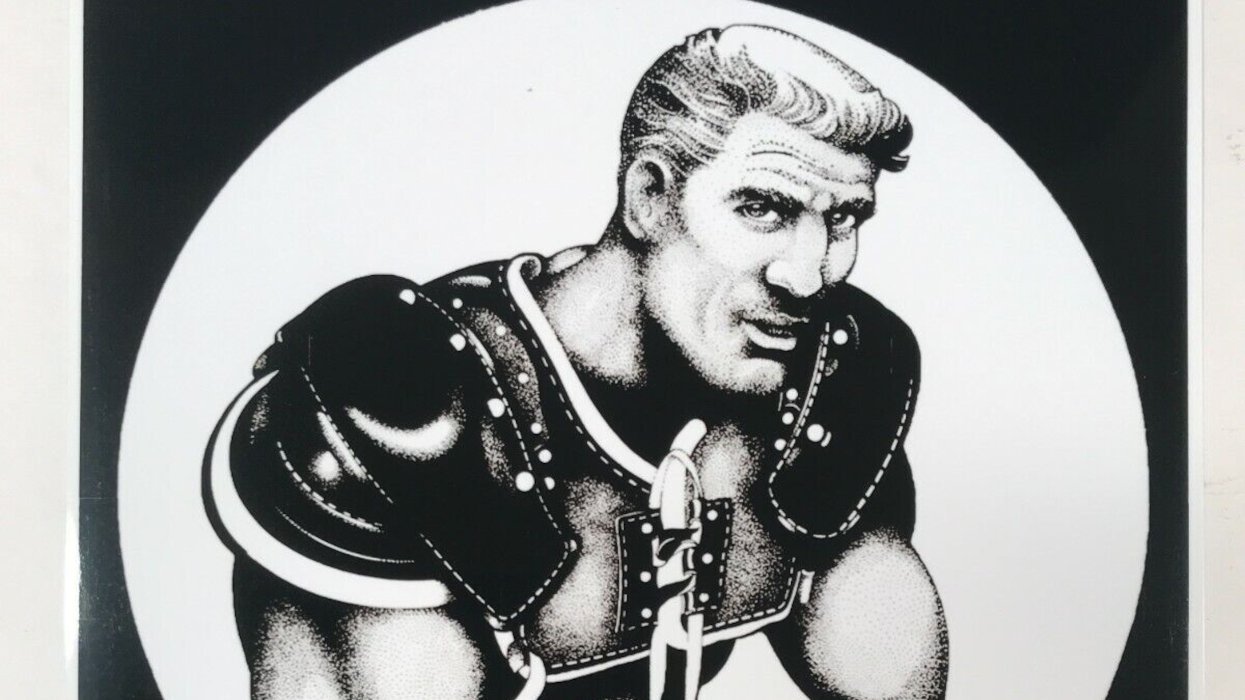
Plus
Yahoo FeedGay fetish artist Rex has died — see some of his sexy work
April 15 2024 8:13 PM
Brittney Griner and her wife, Cherelle, are expecting! Here's when baby Griner is arriving
April 15 2024 12:52 PM
Tennessee Senate passes bill making 'recruiting' for trans youth care a felony
April 14 2024 11:17 AM





















